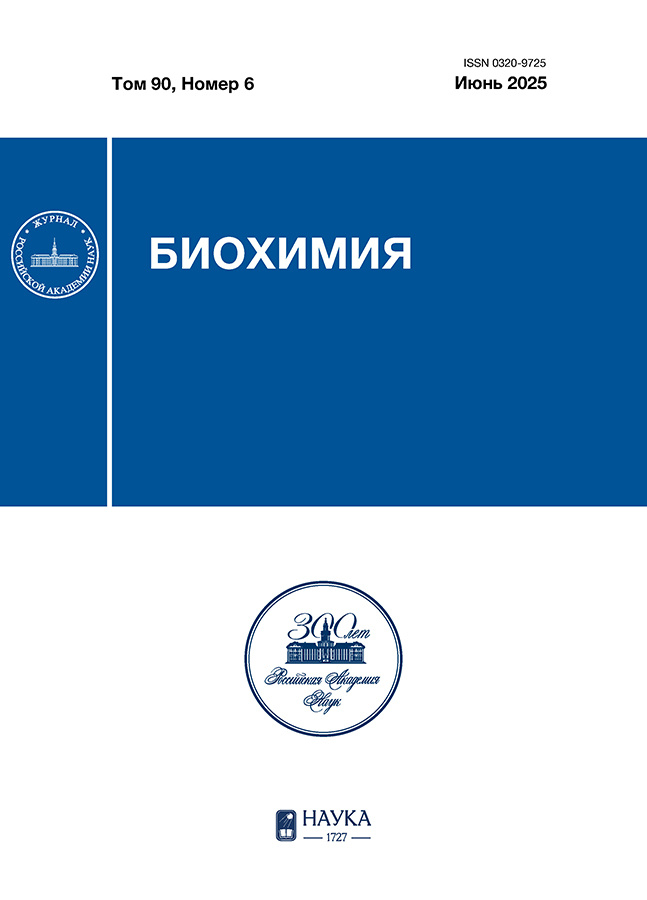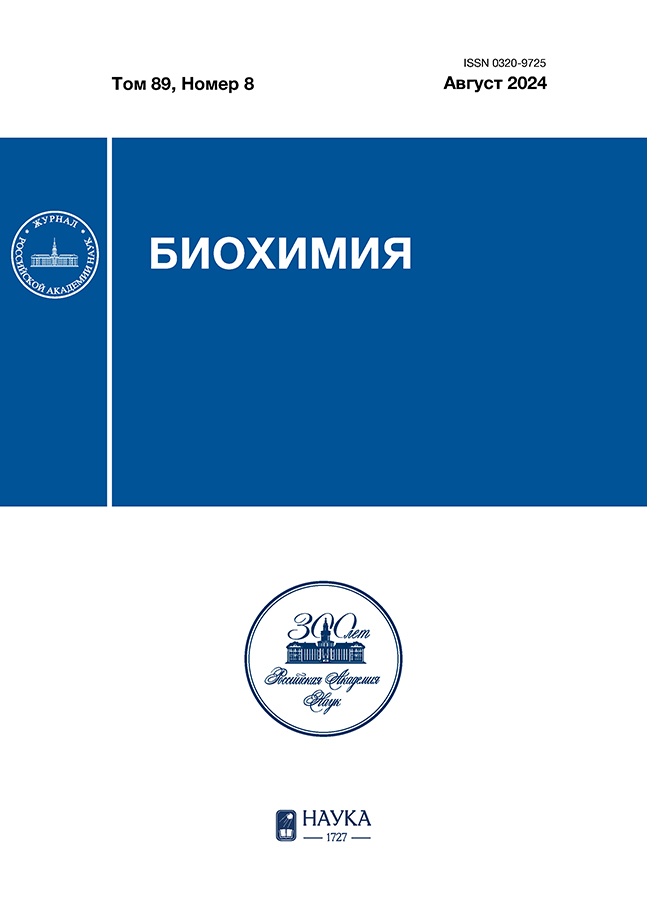Функциональный анализ генов канальных родопсинов зеленых водорослей беломорского бассейна
- Авторы: Карпова О.В.1, Виноградова Е.Н.1,2, Мойсенович А.М.1, Пустовит О.Б.1, Рамонова А.А.1, Абрамочкин Д.В.1, Лобакова Е.С.1
-
Учреждения:
- Московский государственный университет имени М.В. Ломоносова
- НИЦ «Курчатовский Институт»
- Выпуск: Том 89, № 8 (2024)
- Страницы: 1322-1333
- Раздел: Статьи
- URL: https://genescells.com/0320-9725/article/view/665686
- DOI: https://doi.org/10.31857/S0320972524080023
- EDN: https://elibrary.ru/KEECUH
- ID: 665686
Цитировать
Полный текст
Аннотация
Оптогенетика как метод светоуправляемой регуляции клеточных процессов базируется на применении канальных родопсинов, напрямую генерирующих фотоиндуцированные токи. Наибольшее количество генов канальных родопсинов идентифицировано у зеленых микроводорослей Chlorophyta, и запрос на увеличение числа функционально охарактеризованных канальных родопсинов и разнообразие их фотохимических параметров постоянно растет. Мы провели экспрессионный анализ генов катионных канальных родопсинов (CCR) в природных изолятах микроводорослей родов Haematococcus и Bracteacoccus из уникальной зоны Полярного круга. Обнаруженный полноразмерный CCR транскрипт Haematococcus lacustris является продуктом альтернативного сплайсинга и кодирует белок Hl98CCR2, не обладающий фотохимической активностью. 5′-Концевой фрагмент транскрипта CCR Bracteacoccus aggregatus кодирует белок Ba34CCR, содержащий консервативный мембранный домен ТМ1–ТМ7 и короткий участок цитозольного фрагмента. При гетерологичной экспрессии фрагмента ТМ1–ТМ7 в культуре клеток СНО-К1 наблюдалась светозависимая генерация тока, параметры которого соответствуют характеристикам CCR. Впервые обнаруженный функциональный канальный родопсин Bracteacoccus не имеет близких гомологов CCR и может представлять интерес в качестве кандидата для оптогенетики.
Ключевые слова
Об авторах
О. В. Карпова
Московский государственный университет имени М.В. Ломоносова
Автор, ответственный за переписку.
Email: olgakarpova@ymail.com
биологический факультет
Россия, 119991 МоскваЕ. Н. Виноградова
Московский государственный университет имени М.В. Ломоносова; НИЦ «Курчатовский Институт»
Email: olgakarpova@ymail.com
биологический факультет; НБИКС Геномный Центр
Россия, 119991 Москва; 123182 МоскваА. М. Мойсенович
Московский государственный университет имени М.В. Ломоносова
Email: olgakarpova@ymail.com
биологический факультет
Россия, 119991 МоскваО. Б. Пустовит
Московский государственный университет имени М.В. Ломоносова
Email: olgakarpova@ymail.com
биологический факультет
Россия, 119991 МоскваА. А. Рамонова
Московский государственный университет имени М.В. Ломоносова
Email: olgakarpova@ymail.com
биологический факультет
Россия, 119991 МоскваД. В. Абрамочкин
Московский государственный университет имени М.В. Ломоносова
Email: olgakarpova@ymail.com
биологический факультет
Россия, 119991 МоскваЕ. С. Лобакова
Московский государственный университет имени М.В. Ломоносова
Email: olgakarpova@ymail.com
биологический факультет
Россия, 119991 МоскваСписок литературы
- Govorunova, E. G., Sineshchekov, O. A., and Spudich, J. L. (2022) Emerging diversity of channelrhodopsins and their structure-function relationships, Front. Cell. Neurosci., 15, 800313, https://doi.org/10.3389/fncel.2021.800313.
- Sineshchekov, O. A., Govorunova, E. G., Der, A., Keszthelyi, L., and Nultsch, W. (1992) Photoelectric responses in phototactic flagellated algae measured in cell suspension, J. Photochem. Photobiol. B Biol., 13, 119-134, https://doi.org/10.1016/1011-1344(92)85051-U.
- Sineshchekov, O. A., Jung, K.-H., and Spudich, J. L. (2002) Two rhodopsins mediate phototaxis to low- and high-intensity light in Chlamydomonas reinhardtii, Proc. Natl. Acad. Sci. USA, 99, 8689-8694, https://doi.org/10.1073/pnas.122243399.
- Govorunova, E. G., Jung, K.-W., Sineshchekov, O. A., and Spudich, J. L. (2004) Chlamydomonas sensory rhodopsins A and B: cellular content and role in photophobic responses, Biophys. J., 86, 2342-2349, https://doi.org/10.1016/S0006-3495(04)74291-5.
- Deisseroth, K. (2015) Optogenetics: 10 years of microbial opsins in neuroscience, Nat. Neurosci., 18, 1213-1225, https://doi.org/10038/nn.4091.
- Govorunova, E. G., Sineshchekov, O. A., Li, H., Wang, Y., Brown, L. S, Palmateer, A., Melkonian, M., Cheng, S., Carpenter, E., Patterson, J., Wong, G. K., and Spudich, J. L. (2021) Cation and anion channelrhodopsins: sequence motifs and taxonomic distribution, mBio, 12, e0165621, https://doi.org/10128/mBio.01656-21.
- Карпова О. В., Виноградова E. Н., Лобакова Е. С. (2022) Идентификация генов канальных родопсинов в зеленых и криптофитовых водорослях Белого и Черного морей, Биохимия, 87, 1492-1504, https://doi.org/10.31857/S0320972522100141.
- Galietta, L. J., Haggie, P. M., and Verkman, A. S. (2001) Green fluorescent protein-based halide indicators with improved chloride and iodide affinities, FEBS Lett., 499, 220-224, https://doi.org/10.1016/s00145793(01)02561-3.
- Hou, S. Y., Govorunova, E. G., Ntefidou, M., Lane, C. E., Spudich, E. N., Sineshchekov, O. A., Spudich, J. L. (2012) Diversity of Chlamydomonas channelrhodopsins, Photochem. Photobiol., 88, 119-128, https://doi.org/10.1111/j.1751-1097.2011.01027.x.
- Klapoetke, N. C., Murata, Y., Kim, S. S., Pulver, S. R., Birdsey-Benson, A., Cho, Y. K., Morimoto, T. K., Chuong, A. S., Carpenter, E. J., Tian, Z., Wang, J., Xie, Y., Yan, Z., Zhang, Y., Chow, B. Y., Surek, B., Melkonian, M., Jayaraman, V., Constantine-Paton, M., Wong, G. K., and Boyden, E. S. (2014) Independent optical excitation of distinct neural populations, Nat. Methods, 11, 338-346, https://doi.org/10.1038/nmeth.2836.
- Rozenberg, A., Oppermann, J., Wietek, J., Fernandez Lahore, R. G., Sandaa, R. A., Bratbak, G., Hegemann, P., and Béjà, O. (2020) Lateral gene transfer of anion-conducting channelrhodopsins between green algae and giant viruses, Curr. Biol., 30, 4910-4920, https://doi.org/10.1016/j.cub.2020.09.056.
- Nagel, G., Ollig, D., Fuhrmann, M., Kateriya, S., Musti, A. M., Bamberg, E., and Hegemann, P. (2002) Channelrhodopsin-1: a light-gated proton channel in green algae, Science, 296, 2395-2398, https://doi.org/10.1126/science.1072068.
- Nagel, G., Szellas, T., Huhn, W., Kateriya, S., Adeishvili, N., Berthold, P., Ollig, D., Hegemann, P., and Bamberg E. (2003) Channelrhodopsin-2, a directly light-gated cation-selective membrane channel, Proc. Natl. Acad. Sci. USA, 100, 13940-13945, https://doi.org/10073/pnas1936192100.
- Говорунова Е. Г., Синещеков О. А. (2023) Канальные родопсины: от фототаксиса к оптогенетике, Биохимия, 88, 1880-1897, https://doi.org/10.1134/S000629792310015.
- Hososhima, S., Ueno, S., Okado, S., Inoue, K., and Konno, M. (2023) A light-gated cation channel with high reactivity to weak light, Sci. Rep., 13, 7625, https://doi.org/10.1038/s41598-023-34687-7
Дополнительные файлы











